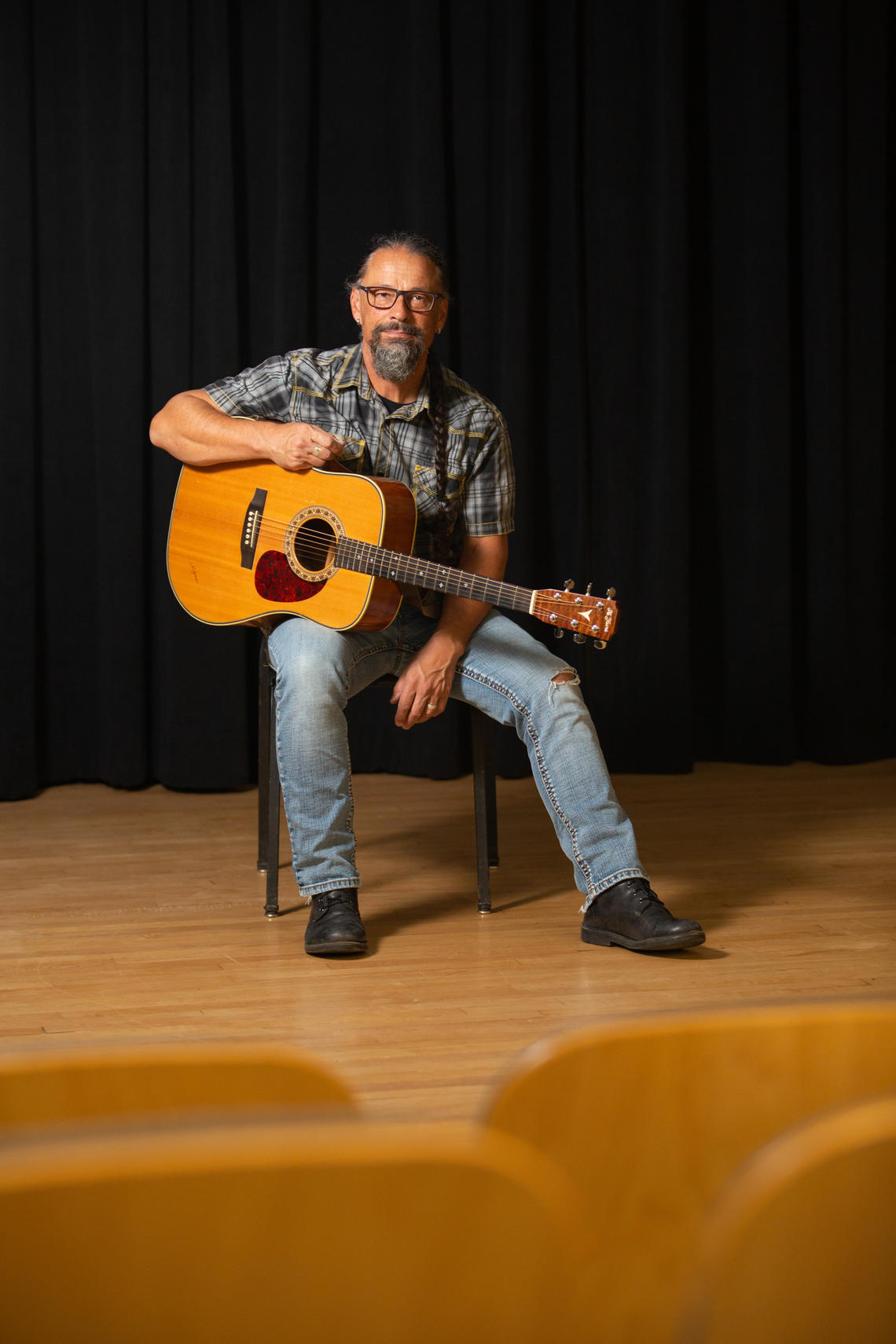Sept. 29, 2021
Classics and Religion instructor takes on Canadian colonialism with Songs of Justice

Even though he entered university as a music major in the early ‘80s and went on to record a handful of independent gospel/R&B albums in the years that followed, Craig Ginn, a senior instructor in the Department of Classics and Religion, hadn’t written a song in over 15 years. At some point his career in academia simply took precedence over his musical pursuits.
It was a moment of anger that reignited his long dormant songwriting passions.
Ginn had come across an archived political panel discussion on the CBC, from 2017, on the topic of Canada’s first prime minister, Sir John A. Macdonald, and his troubling legacy with respect to First Nations people. Two historians and an Indigenous rights activist debated about whether Macdonald’s statues should be taken down and his name removed from schools and other public institutions. One of the historians argued against such steps, calling for a “timeout” to further assess Canada’s first prime minister.
Ginn, who is of Métis ancestry, felt his teeth grit. “I think we have enough history to go on by now to make a fair assessment,” he says. “I was angry, and I picked up my guitar, which I hadn’t done in a long time.”
Ginn wrote the song Let Justice Roll, a dark folk-rocker and scathing indictment of both Macdonald and those who would absolve him of the steps he put in place which proved catastrophic for First Nations, Inuit and Métis people.
While mixing the song in Calgary’s StudioD, Ginn was encouraged by engineer Steve Dierkens to develop a lyric video for the song, and to continue writing songs born of the intense frustration he was feeling. Slowly, Ginn began accumulating the 10 songs on his album Songs of Justice, which he released online last month, free of charge.
Songs tackle injustices — and strengths
While many of the songs tackle the grave injustices suffered by Canada’s Indigenous Peoples, others, like Voices of Tradition — co-written with UCalgary’s Vice-Provost (Indigenous Engagement), Michael Hart — highlight First Nations’ strength.
“It’s a song that recognizes the rich tradition of Indigenous knowledge,” says Ginn. “When I was writing it, I wanted Michael to review the lyrics and help me articulate some of my ideas. He was such a solid consultant and collaborator on the song. And, along with Marica Cassis (department head, Classics and Religion), he was so supportive of the entire project.”

Riley Brandt, University of Calgary
Ginn notes that his wife, Carla Ginn, an assistant professor in the Faculty of Nursing, and Derek Pulliam, engineer at Dog in the Window Records, also collaborated with him on the album’s lyrics.
Another standout track is There for the Money, which takes prime minister Justin Trudeau to task for his mocking, dismissive treatment in 2019 of an activist from Grassy Narrows First Nation, long plagued with mercury poisoning in their water supply.
The intersection of music and religion
A series of songs on the album also address the controversial history of Louis Riel. Some of these songs are informed, in part, by Ginn’s academic research.
“My focus has often been at the intersection of music and religion and the way in which music can express and influence religious belief, doctrine and theology,” he says.
“In some of the Riel songs I incorporate his actual poetry, and if you look at that as a lyric-based medium you’ll find a lot of belief. Some of the poetry was written when he was facing death and it shines a light on both his Christianity and his Indigenous spirituality.”
It’s well worth noting that Ginn wrote the album’s songs before the discovery of unmarked graves on residential school grounds, which has been ongoing since May. Even he never dreamed that Songs of Justice would feel as powerfully relevant as it does today.
“We’re progressing on a post-colonial path, both as a university and as a society,” Ginn says. “We’re making strides, and I thought these songs might be a very small part of the conversation. But I think the discovery of the unmarked graves has awakened a broader base of people, with a stark reality that was really horrifying.
Perhaps these songs will fit into the urgency of the current conversation more than I had ever anticipated.
Indeed, Ginn has been approached by both high school and university teachers who feel that Songs of Justice might be adopted as an effective teaching tool. “I’m working towards creating videos for every song on the album, which would enhance that teaching experience, I feel,” he says.
“To bring some of these songs into classrooms where they could be studied in a historical context, with decolonial interests in mind — that would be very rewarding.”






